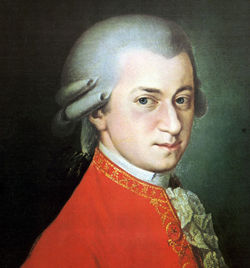 In the August 2006 issue of the Scientific American, Phillip Ross explores what makes an expert an expert. The key, both surprisingly and unsurprisingly, is training. Or what the article calles “effortful study, which entails continually tackling challenges that lie just beyond one’s competence.” Training trumps talent. (Talent, in fact, might not exist at all).
In the August 2006 issue of the Scientific American, Phillip Ross explores what makes an expert an expert. The key, both surprisingly and unsurprisingly, is training. Or what the article calles “effortful study, which entails continually tackling challenges that lie just beyond one’s competence.” Training trumps talent. (Talent, in fact, might not exist at all).
Teachers in sports, music and other fields tend to believe that talent matters and that they know it when they see it. In fact, they appear to be confusing ability with precocity. There is usually no way to tell, from a recital alone, whether a young violinist’s extraordinary performance stems from innate ability or from years of Suzuki-style training. Capablanca, regarded to this day as the greatest “natural” chess player, boasted that he never studied the game. In fact, he flunked out of Columbia University in part because he spent so much time playing chess. His famously quick apprehension was a product of all his training, not a substitute for it.
The preponderance of psychological evidence indicates that experts are made, not born. What is more, the demonstrated ability to turn a child quickly into an expert–in chess, music and a host of other subjects–sets a clear challenge before the schools. Can educators find ways to encourage students to engage in the kind of effortful study that will improve their reading and math skills? Roland G. Fryer, Jr., an economist at Harvard University, has experimented with offering monetary rewards to motivate students in underperforming schools in New York City and Dallas. In one ongoing program in New York, for example, teachers test the students every three weeks and award small amounts–on the order of $10 or $20–to those who score well. The early results have been promising. Instead of perpetually pondering the question, “Why can’t Johnny read?” perhaps educators should ask, “Why should there be anything in the world he can’t learn to do?”
Philip E. Ross, The Expert Mind, Scientific American, July 24, 2006. (August 2006 issue). http://scientificamerican.com/article.cfm?chanID=sa006&colID=1&articleID=00010347-101C-14C1-8F9E83414B7F4945. Studies of the mental processes of chess grandmasters have revealed clues to how people become experts in other fields as well.
Image credit: W.A. Mozart, retratu construiu, Barbara Krafft, 1819. http://ast.wikipedia.org/wiki/Wolfgang_Amadeus_Mozart
